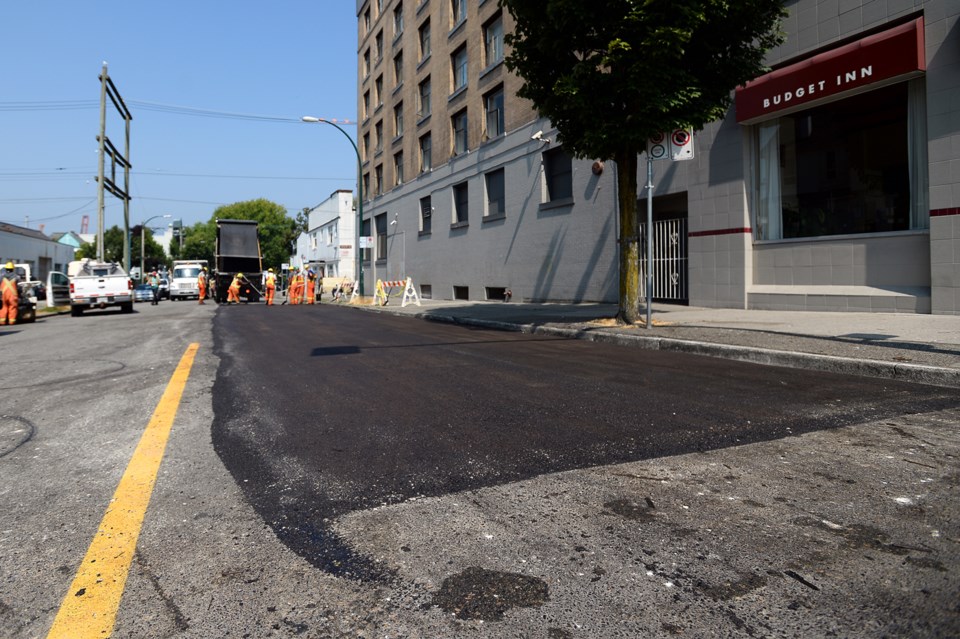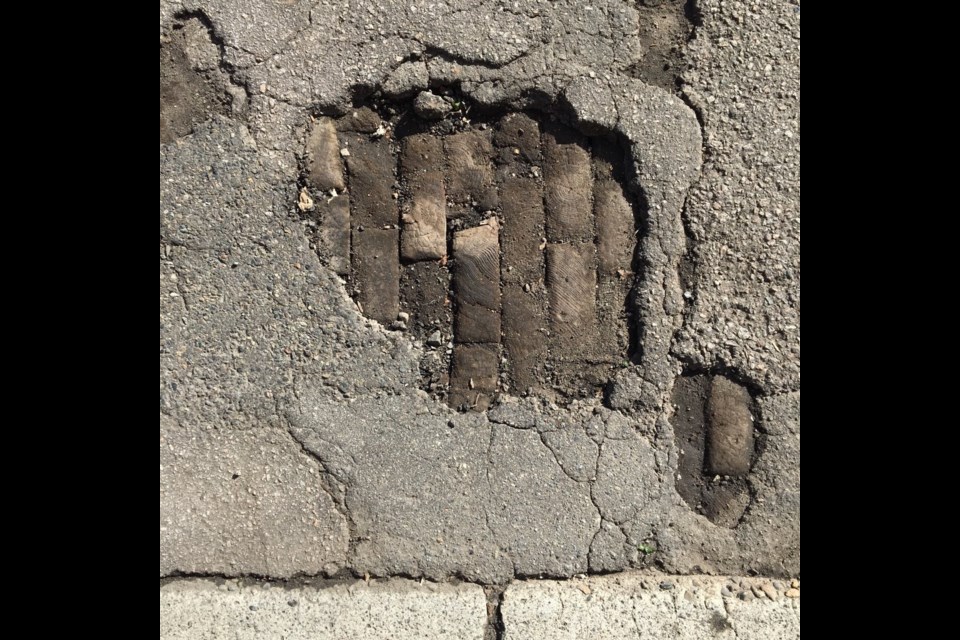Exposed wooden pavers on Dunlevy Street near Hastings have been paved over by city crews after some dried out due to hot, dry temperatures in the last few weeks.
The heat caused them to break into parts.
��

��
The remaining blocks of wood were paved over to prevent any public safety issues from the damaged wood, according to the City of Vancouver.
Wood blocks in roadways can get damaged for a variety of reasons including weather, seasonal temperatures, vehicle traffic and being exposed over time.������
Downtown Eastside resident Karen Ward noticed the damaged wood before it was paved over and took a photo.
��
aah, look what happened - to Dunlevy at Hastings. wooden street, smashed to splinters
— Karen Ward (@kwardvancouver)
��
Patrick Gunn of Heritage �鶹��ýӳ��Society calls the wooden blocks “a unique part of the city’s layered history, directly under our feet, [that] helps to physically illustrate how the City was built.
“Each time a patch is uncovered, it certainly creates a lot of interest and conversation,” he told the Courier. “It’d be fantastic if a small area could be exposed, repaired and stabilized in a non-critical area, even a walking segment, similar to what a few cities in the U.S. have done with their uncovered wooden pavers.”
He said Heritage �鶹��ýӳ��loves what the city did when crews exposed and repaired a full stretch of granite pavers a number of years ago on Hamilton Street next to Victory Square.
“You can’t miss them when walking, cycling or driving over... in an alleyway/passageway as well.”
Gunn came across some century-old wooden pavers this spring, which were partially exposed in the 200 block of East Georgia Street.
He said they turn up once in a while in older areas of Vancouver. They were economical when they were first installed, easier on horses’ feet than stone paver blocks and quieter.
Wooden pavers went out of popularity around 1910.
Read about Gunn’s wooden paver find in a Courier story published on April 2 .
��
��
��
��



